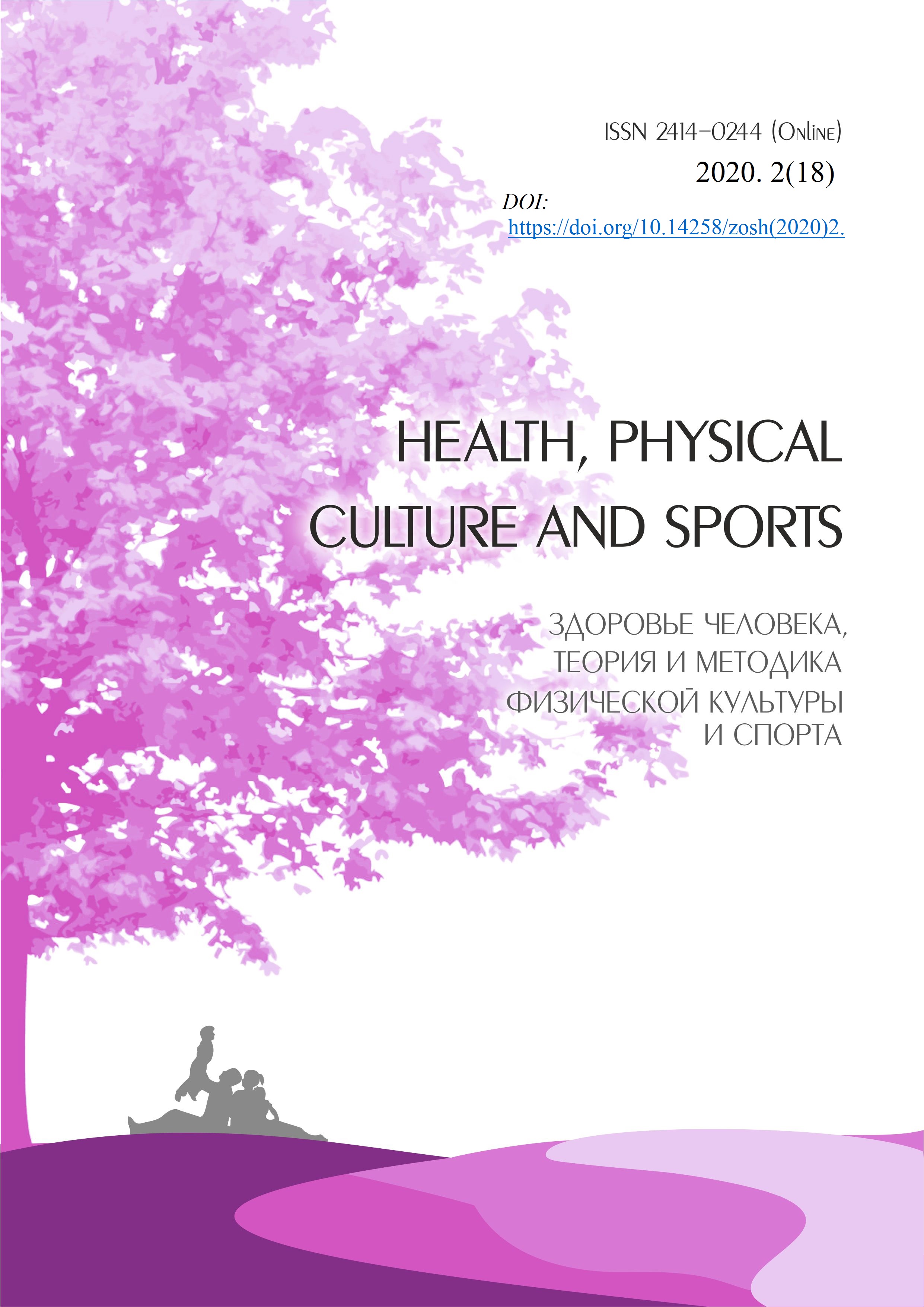Psychological consequences of violence
Abstract
Abstract. The article presents the results of the study of emotional stability of boys and girls who experienced physical violence in childhood. Emotionality is considered as a generalized characteristic of the emotional sphere of a person, which affects the personality and its successful functioning. One of the reasons for the change in emotionality, manifestation and flow of emotions is the experience of violence. The article indicates the diversity in the definition of the concepts of "punishment", "ill-treatment", "violence" and the lack of a single conceptual apparatus. The authors talk about the consequences of experienced violence, which can be manifested in cognitive impairment, learning problems, low socio-economic status, problems with raising their own children. In this regard, the study was conducted emotionality of boys and girls aged 18-20 years. The sample was divided into empirical and control groups.
The authors conducted a study of the emotionality of boys and girls with experience of physical violence in the parental family. The article shows the peculiarities of emotionality in the empirical group in comparison with the control group. Characteristics of emotionality, such as "emotional excitability", "duration of emotions", "intensity of emotions" are more pronounced in the group of boys and girls who experienced violence in childhood. Consideration of the "negative impact of emotions on the effectiveness of activities and communication" through the prism of the situation of experienced violence, allows us to talk about less efficiency in communication and activity in a group of boys and girls with experience of violence in childhood. It was revealed that boys and girls are more likely to show anxiety and rigidity. Connections of various characteristics of emotionality of mental States and characterological accentuations of the personality are shown. It was revealed that girls and boys with experience of violence in the parental family are more emotionally excitable, anxious, with a pronounced rate of emotional reaction. Girls and boys are more withdrawn, indecisive in behavior, isolation from others. The respondents from the empirical group the necessary psychological support.
Downloads
References
Алексеева И.А., Новосельский И.Г. Жестокое обращение с ребенком. Причины. Последствия. Помощь. 2-е изд. М.: Генезис, 2010. 272 с.
Абрамов Н.К. Семья и проблемы «внутрисемейной» жестокости // Агрессия и жестокость. СПб.: Питер, 2005. С. 104–109.
Григович И.Н. Синдром жестокого обращения с ребенком. Диагностика. Помощь. Предупреждение. М.: Национальный фонд защиты детей от жестокого обращения, 2012. 184 с.
Дозорцева Е.Г. Психологическая травма у подростков с проблемами в поведении. Диагностика и коррекция. М.: Генезис, 2007. 128 с.
Дозорцева Е.Г. Психическая травма и социальное функционирование девочек- подростков с делинквентным поведением // Российский психиатрических журнал. 2006. No 4. С.12–16.
Здравомыслова Е.М. Насилие в семье и кризис традиционной концепции воспитания // Человек и семья: Мат-лы науч.-практич. конф. М.: Социальная педагогика , 2000. С. 18–25.
Ильина С.В. Эмоциональный опыт насилия и пограничная личностная организация при расстройствах личности: дис... канд. психол. наук. М., 2000. 241 с.
Малкина-Пых И.Г. Психология поведения жертвы. М.: Эксмо, 2006. 1008 с.
Биренбаум Я.Г. Эмоциональность и экспрессивность в пространстве вводности //Выражение экспрессии в языке и речи. Новосибирск, 1977. Вып.107. С. 3 - 10.
Вежбицкая А. Язык. Культура. Познание. М. : Рус. словари, 1997.
Лукьянова Н.А. Экспрессивная лексика разговорного употребления (проблемы семантики). Новосибирск : Наука, 1986.
Ильин Е.П. Эмоции и чувства. СПб: Питер, 2001. 752 с.
References
Kachaeva M.A., Dozortseva E.G., Nutskova E.V. (2017). Otsrochennye posledstviia perezhitogo domashnego nasiliia u zhenshchin i devochek. Psikhologiia i pravo, 3(7)
Alekseeva I.A., Novosel'skii I.G. (2010). Zhestokoe obrashchenie s rebenkom. Prichiny. Posledstviia. Pomoshch'. 2-e izd. Moscow: Genezis, 272 p.
Abramov N.K. (2005). Sem'ia i problemy "vnutrisemeinoi' zhestokosti. Agressiia i zhestokost'. SPb.: Piter, 2005. Рр. 104–109.
Grigovich I.N. (2012). Sindrom zhestokogo obrashcheniia s rebenkom. Diagnostika. Pomoshch'. Preduprezhdenie. Mosow: Natsional'nyi fond zashchity detei ot zhestokogo obrashcheniia, 184 p.
Dozortseva E.G. (2007). Psikhologicheskaia travma u podrostkov s problemami v povedenii. Diagnostika i korrektsiia. Moscow: Genezis, 2007. 128 s.
Dozortseva E.G. (2006). Psikhicheskaia travma i sotsial'noe funktsionirovanie devochek- podrostkov s delinkventnym povedeniem. Rossiiskii psikhiatricheskikh zhurnal, 4. Pp.12–16.
Zdravomyslova E.M. (2000). Nasilie v sem'e i krizis traditsionnoi kontseptsii vospitaniia. Chelovek i sem'ia: Mat-ly nauch.-praktich. konf. M.: Sotsial'naia pedagogika , p. 18–25.
Il'ina S.V. (2000). Emotsional'nyi opyt nasiliia i pogranichnaia lichnostnaia organizatsiia pri rasstroistvakh lichnosti: dis... kand. psikhol. nauk. Moscow, 241 p.
Malkina-Pykh I.G. (2006). Psikhologiia povedeniia zhertvy. Moscow: Eksmo, 2006. 1008 s.
Birenbaum Ia.G. (1997). Emotsional'nost' i ekspressivnost' v prostranstve vvodnosti // Vyrazhenie ekspressii v iazyke i rechi. Novosibirsk, 1977. Vyp.107. S. 3 - 10.
Vezhbitskaia A. (1997). Iazyk. Kul'tura. Poznanie. M. : Rus. slovari, 1997.
Luk'ianova N.A. (1986). Ekspressivnaia leksika razgovornogo upotrebleniia (problemy semantiki). Novosibirsk : Nauka, 1986.
Il'in E.P. (1986). Emotsii i chuvstva. SPb: Piter, 2001. 752 p.
An author should not normally publish manuscripts describing essentially the same research in multiple journals or publication venues. Such redundant publication is generally considered to constitute unethical publishing behavior, and if discovered may result in a manuscript under consideration being rejected, or a published article being retracted.
Authors of manuscripts reporting on original research should present an accurate account of the work performed, accompanied by an objective discussion of its significance. Underlying data should be represented accurately in the manuscript. The manuscript should contain sufficient detail and references to permit others to replicate the work. The fabrication of results and the making of fraudulent or knowingly inaccurate statements constitute unethical behavior and may be cause for rejection or retraction of a manuscript or published article.





